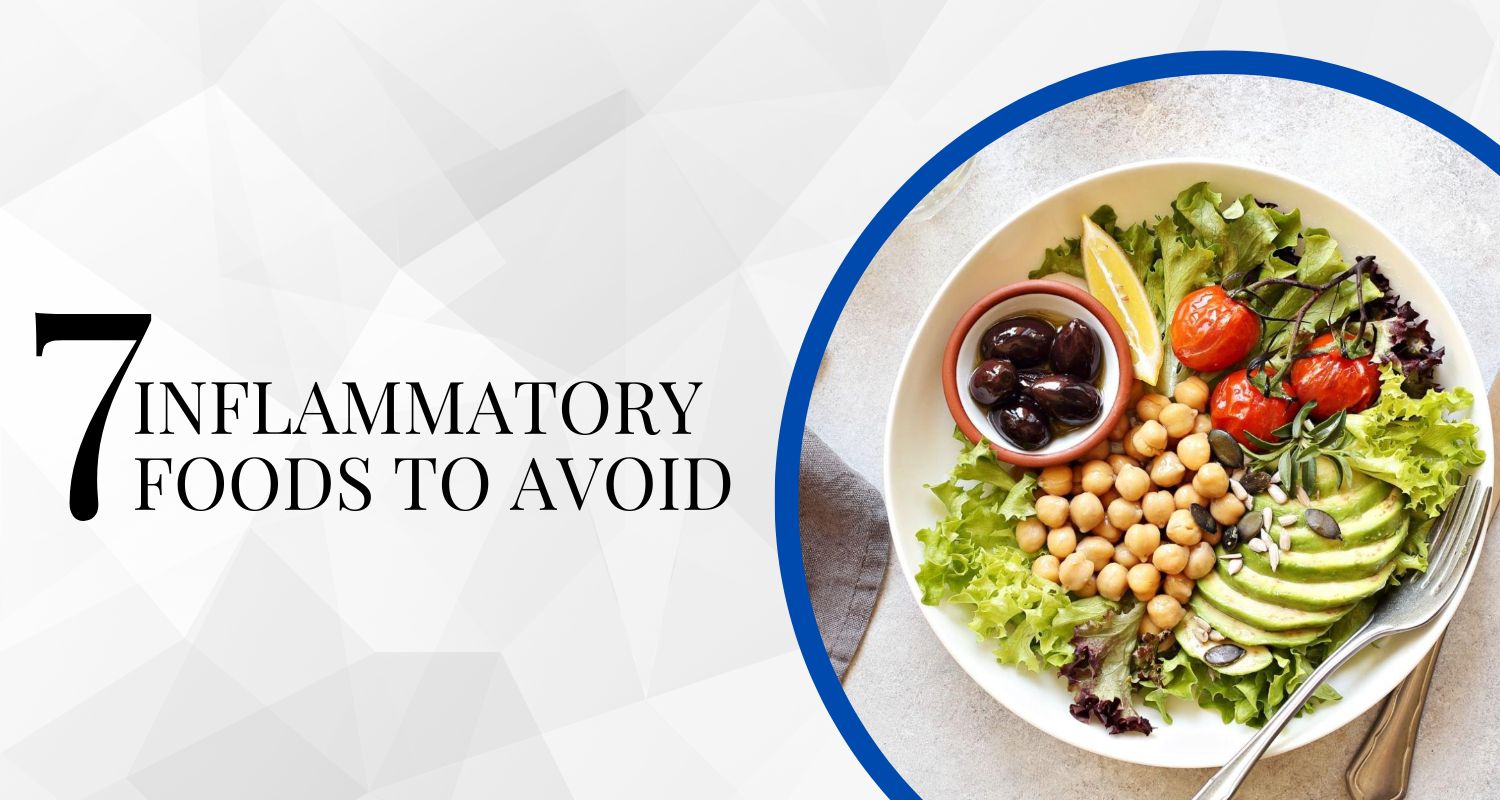Inflammatory Foods to Avoid: Inflammation is a natural defense mechanism of our body, designed to protect us from harm and promote healing.
However, chronic inflammation can lead to a host of health issues, including heart disease, diabetes, and arthritis. One significant contributor to chronic inflammation is our diet.
1. Processed Sugar and Sugary Beverages
Processed sugar is a well-known inflammatory food that many of us consume regularly. Foods high in added sugars can lead to spikes in blood sugar levels, causing our bodies to release inflammatory chemicals.
Sugary beverages, like sodas and energy drinks, are among the worst offenders. These drinks are laden with high-fructose corn syrup and can contribute to chronic inflammation.
Alternatives:
Opt for natural sweeteners like honey, maple syrup, or stevia. Satisfy your sweet tooth with whole fruits, which contain natural sugars and antioxidants that combat inflammation.
2. Inflammatory Foods to Avoid: Trans Fats
Trans fats are artificially created fats often found in partially hydrogenated oils. These fats not only raise levels of “bad” LDL cholesterol but also trigger inflammation within the body.
They are commonly found in many processed and fried foods, making it essential to scrutinize food labels for their presence.
Alternatives:
Choose cooking oils like olive oil and avocado oil, which are rich in heart-healthy monounsaturated fats. When enjoying snacks, pick options like nuts and seeds, which are some of the best anti-inflammatory foods available.
3. Refined Grains
Refined grains, such as white bread, white rice, and pasta made from white flour, have been stripped of their fiber and nutrients, leaving behind empty calories that can lead to inflammation.
These foods are known to be one of the top inflammation causes in today’s foods consumed. These foods also cause rapid spikes in blood sugar, contributing to chronic inflammation.
Alternatives:
Opt for whole grains like brown rice, quinoa, and whole wheat bread. These alternatives are loaded with fiber, vitamins, and minerals that reduce inflammation in the body.
4. Inflammatory Foods to Avoid: Red and Processed Meats
Red and processed meats, including beef, pork, and processed sausages, contain saturated fats and high levels of omega-6 fatty acids.
Consuming these meats in excess can increase inflammation and the risk of chronic diseases, such as heart disease and cancer.
Alternatives:
Choose lean protein sources like poultry, fish, and plant-based options like beans and tofu. Fatty fish, such as salmon and mackerel, are rich in omega-3 fatty acids, which have potent anti-inflammatory properties.
5. Dairy Products
Dairy products, particularly full-fat varieties, are known to be inflammatory foods for some people. Lactose and casein, two proteins in dairy, can trigger an inflammatory response in those who are lactose intolerant or sensitive to dairy.
Alternatives:
Consider dairy alternatives like almond milk, soy milk, or coconut yogurt. If you do consume dairy, choose low-fat options and monitor your body’s response to it.
6. Artificial Additives and Preservatives
Artificial additives and preservatives, including artificial colorings, flavorings, and sweeteners, are often found in processed foods.
These chemicals can cause inflammation and exacerbate conditions like irritable bowel syndrome (IBS) and other gastrointestinal issues.
Alternatives:
Prioritize whole, unprocessed foods in your diet. When buying packaged foods, look for products with minimal ingredients and recognizable components, and opt for those with no artificial additives or preservatives.
7. Inflammatory Foods to Avoid: High Omega-6 Oils
Certain cooking oils, such as soybean, corn, and sunflower, are high in omega-6 fatty acids. While omega-6 fats are essential for our health, an imbalance between omega-6 and omega-3 fatty acids can promote inflammation when omega-6 intake is too high.
Alternatives:
Use cooking oils like olive oil, which has a more balanced omega-6 to omega-3 fatty acids ratio. Also, incorporate foods rich in omega-3s, like flaxseeds, chia seeds, and walnuts, into your diet to help counteract inflammation.
Conclusion
Inflammation is a natural body response, but it can lead to various health problems when it becomes chronic. The foods we consume significantly determine whether inflammation remains in check or spirals out of control.
Remembering the inflammatory foods to avoid and incorporating anti-inflammatory foods into your diet can support your overall well-being and reduce the risk of chronic inflammation-related diseases.
Remember that dietary choices are highly individual, and what causes inflammation in one person may not do the same in another. If you suspect certain foods that cause inflammation in your body, consider consulting a healthcare professional or a registered dietitian for personalized guidance.
Making informed choices about what you eat can be a powerful tool in your journey toward better health and well-being. By making conscious choices, you can help your body maintain a balanced state of well-being and reduce the risk of chronic inflammation-related diseases.
So, take charge of your diet and make choices that support your long-term health and vitality.

